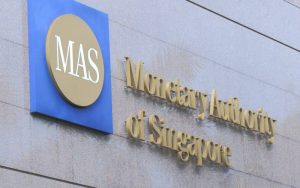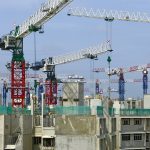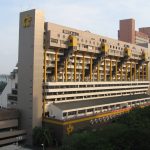MAS and Financial Industry Extend Support for Individuals and SMEs who Need More Time to Resume Loan Repayments
The Monetary Authority of Singapore (MAS), together with the Association of Banks in Singapore (ABS) and the Finance Houses Association of Singapore (FHAS), on October 5th announced an extension of support measures to help individuals and Small and Medium-sized Enterprises (SMEs) facing cashflow difficulties transition gradually to full loan repayments. These extended measures will progressively expire over 2021.

Since April this year, banks and finance companies have been providing payment deferrals for individuals and SMEs facing short term challenges in servicing their loan instalments. The Association of Banks in Singapore refer to these measures as the Special Financial Relief Programme. The various relief measures have helped ease the cashflow pressures faced by these individuals and SMEs, and are set to expire by 31 December 2020.
As economic activities continue to open up, borrowers who are able to resume paying their loan instalments in full should start doing so from 1 January 2021, as further postponement increases their overall debt.
MAS and the financial industry recognise, however, that many individuals and businesses will continue to experience cashflow pressures into early 2021.
The extended support measures will give such individuals and businesses currently under loan repayment deferrals more time to resume repayments.
Table of Contents
The support measures will also be available to borrowers previously not under any payment deferral, but who are now facing cashflow challenges.
Helping Individuals with Loan Commitments
Reduced Instalment Plans for Property Loans
Individuals with residential, commercial and industrial property loans who are unable to resume making full loan repayments may apply to their respective bank or finance company to make reduced instalment payments pegged at 60% of their monthly instalment, for a period of up to 9 months.
For most individuals, the 60% reduced monthly instalment will cover interest and partial principal payments. This will ease individuals’ cashflow, while still allowing borrowers to pay down their principal amount.
This option is available to individuals who can provide proof of income impact of at least 25%, with property loan payments that are not more than 90 days past due, regardless of whether they have taken up payment reliefs previously. Individuals who meet these criteria can apply for assistance from 9 November 2020 till 30 June 2021. Individuals who are unable to service the reduced payments under this programme should approach their lenders early to discuss alternative repayment options.
Loan Tenure Extension for Renovation and Student Loans
Individuals with renovation and student loans may apply to their respective bank to extend their loan tenures by up to 3 years. This will lower individuals’ monthly instalments and ease their cashflow burden.
This option is available to individuals who can provide proof of income impact, and whose renovation or student loan payments are not more than 90 days past due, regardless of whether they have taken up payment reliefs previously. Individuals who meet these criteria can apply for assistance from 9 November 2020 till 30 June 2021. Individuals who are unable to service the reduced payments under this programme should approach their lenders early to discuss alternative repayment options.
Extended Assistance for Personal Unsecured Credit and Debt Consolidation Plan
Individuals who face difficulty repaying their unsecured revolving credit facilities, who can provide proof of income impact of at least 25% and with repayments that are between 30 and 90 days past due, may apply to their lender till 30 June 2021 to convert their outstanding balances to term loans at a reduced interest rate. Under this unsecured credit relief offered since April 2020, the interest on the term loan is capped at an 8% effective rate (compared to the 26% per annum rate typically charged on credit cards).
Individuals on Debt Consolidation Plans (DCP) who can provide proof of income impact and with repayments that are between 30 and 90 days past due, may apply to their lender till 30 June 2021 to extend the loan tenure of their DCPs for up to 5 years. This relief for DCP borrowers has been offered since May 2020.
Individuals who took up the unsecured credit relief or the DCP relief but continue to face difficulty repaying those loans, can reach out to their lenders or Credit Counselling Singapore (CCS) to discuss restructuring plans which can help ease their cashflow burden.
Helping SMEs with Loan Commitments and Restructuring Options
Partial Deferment of Principal Payments on Secured SME Loans and Loans under Enterprise Singapore
SMEs in need of further relief should first consider the Extended Support Scheme – Standardised (ESS-S). Under this scheme, SMEs in Tier 1 and 2 sectors may opt to defer 80% of principal payments on their secured loans granted by banks or finance companies, as well as loans granted under Enterprise Singapore’s (ESG) Enhanced Working Capital Loan Scheme and Temporary Bridging Loan Programme till 30 June 2021.
The determination of the borrower’s Tier is established via the Job Support Scheme (JSS) notice(s) or other documentation from IRAS. Tier 1 and 2 sectors include aviation and aerospace, tourism, hospitality, conventions and exhibitions, built environment, licensed food shops and food stalls (including hawker stalls), qualifying retail outlets, arts and entertainment, land transport, and marine and offshore. Tier 3 (comprising Tier 3A and 3B) sectors refer to all other sectors that are not in Tier 1 and Tier 2.
SMEs in other sectors may opt to do the same up to 31 March 2021. The extension of the loan repayment deferral to also cover the ESG loan schemes will provide support to a larger number of SME borrowers.
This relief will be available to all SMEs that are in good standing with their banks and finance companies, that is, not more than 30 days past due on all their loan payments. SMEs whose loans have been granted principal moratorium should also not have overdue interest payments for these loans.
Customised Restructuring Programmes
To help SME borrowers for whom the ESS-S is not suitable, banks and finance companies are also developing an Extended Support Scheme – Customised (ESS-C) to facilitate the restructuring of a borrower’s loans across multiple financial institutions. Most SME borrowers have only one lender, but for those with more than one lender, the ESS-C programme will help to bring together the various lenders to allow for better restructuring outcomes.
The ESS-C complements other restructuring assistance schemes, under the Ministry of Law’s (MinLaw) proposed Simplified Insolvency Programme (SIP) for micro and small companies and CCS’ scheme for sole proprietors and partnerships (SPP scheme). The ESS-C will be available for SMEs with more than one lender for whom the CCS’ SPP scheme and MinLaw’s SIP may not be suitable. Such SMEs should approach one of their lenders to assess if they would benefit from a multi-lender restructuring under the ESS-C. More details on the ESS-C will be provided in the coming weeks. Borrowers can apply for both the ESS-S and ESS-C from 2 November 2020 onwards.
Mr Ravi Menon, MAS Managing Director said, “MAS and the financial industry have put much care in the design of the extended credit support measures. We want to continue providing relief to borrowers facing cashflow challenges while encouraging them to resume loan repayments to the extent they are able to so that they do not accumulate too much debt. A good outcome is one where individuals and SMEs are able to use the support measures to help them tide through the current economic difficulties and emerge with a sustainable debt burden as the economy recovers.”
Mr Samuel Tsien, Chairman of the ABS said, “As the Special Financial Relief Programme (SFRP) announced earlier this year will expire on 31 December, ABS and the banks in Singapore have worked closely with MAS on a set of targeted measures to support our customers through a smooth and progressive transition out of the SFRP. With the economic impact of Covid-19 expected to carry over to 2021, the Extended Support Scheme is designed to assist individuals and SMEs who continue to face difficulties and are not able to immediately transition back to full loan repayments. Banks will work closely with those who need further support by offering other restructuring solutions.”
Mr Ang Tang Chor, Chairman of the Finance Houses Association of Singapore, said, “Amid the economic downturn due to COVID-19, some individuals and SMEs will need more time and support in restarting loan repayments after the Special Financial Relief Programme ends. Together with MAS and ABS, the finance companies in Singapore are committed to rendering our customers further cash flow assistance through the Extended Support Schemes. These schemes will help to alleviate the challenges and uncertainties these customers faced during this difficult journey.






